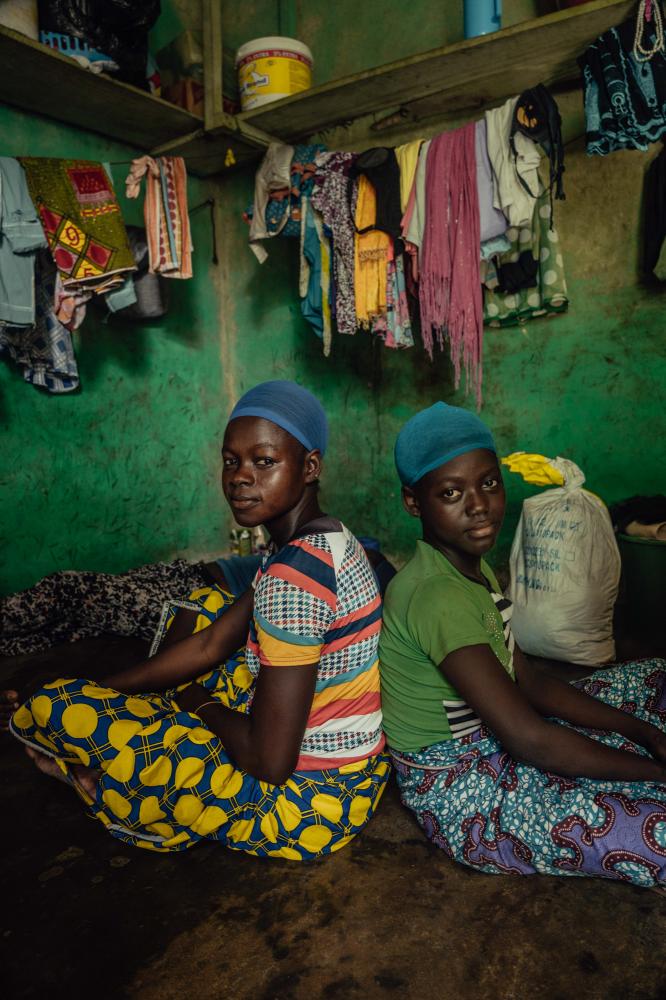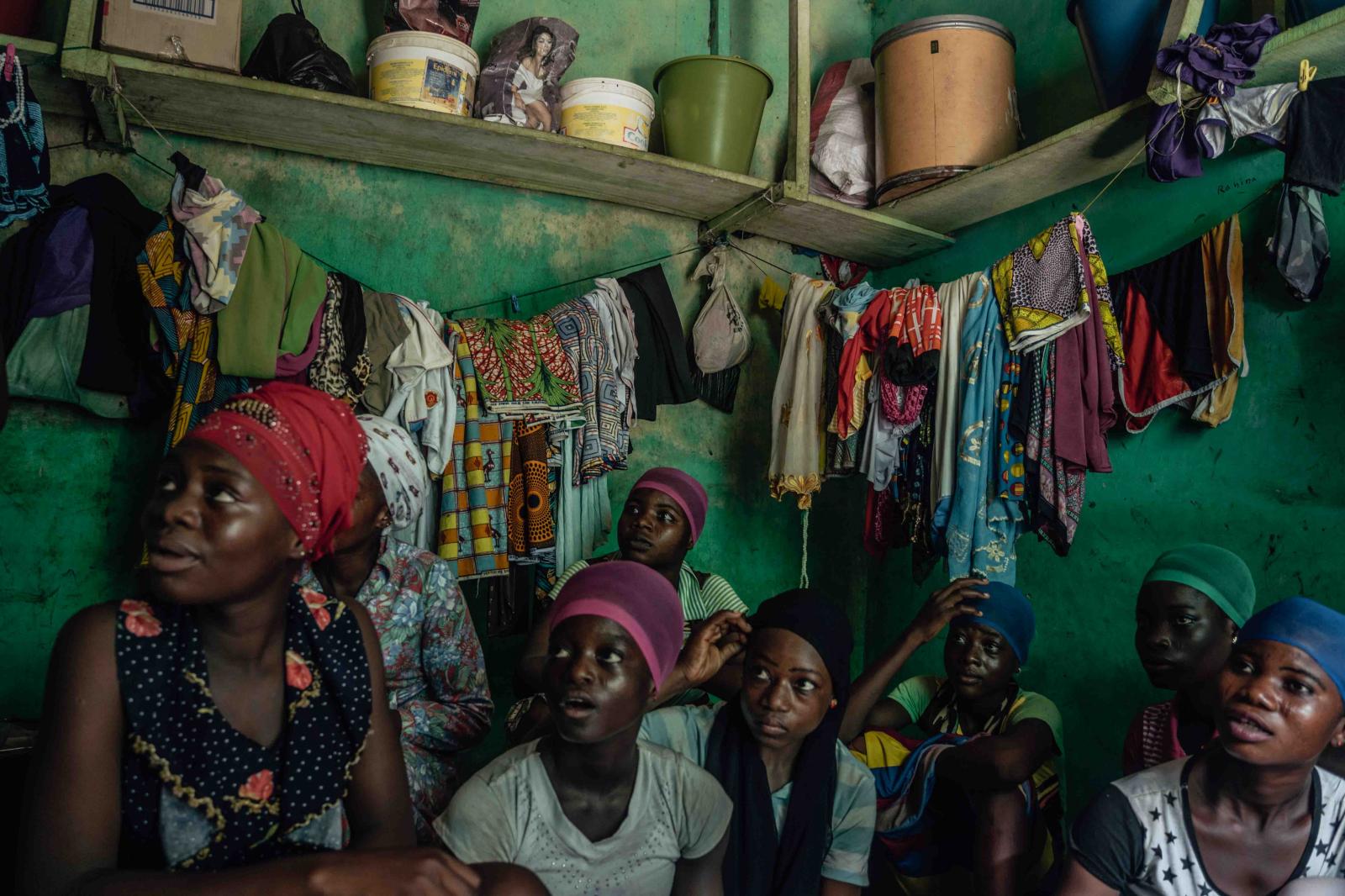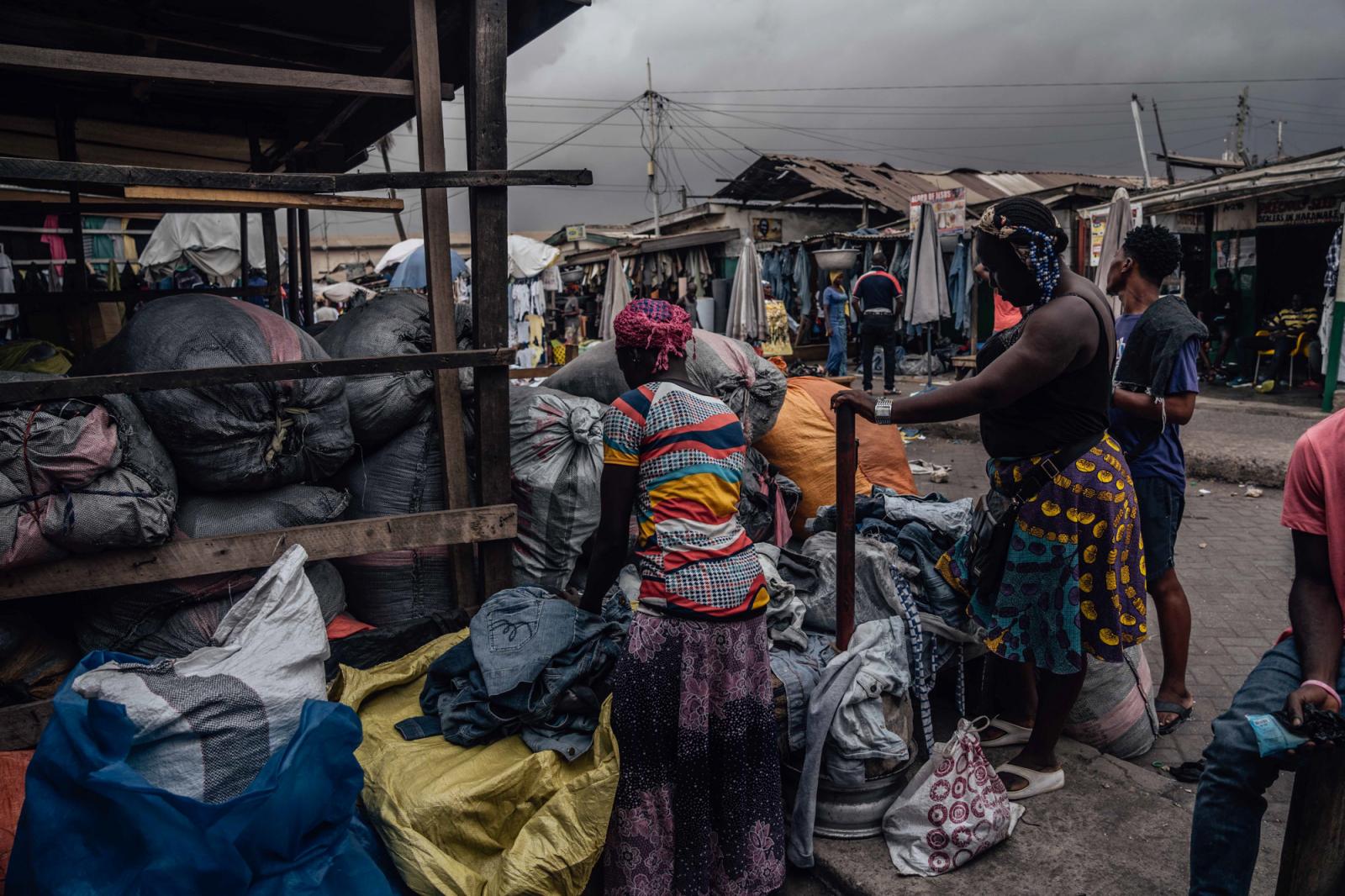Public Project
Kayayei Sisters
Many of these young women have no formal education and on their arrival to Accra often end up working as kayayei (female head porters). For long hours in the sweltering heat, the kayayei carry goods on their heads throughout Accra’s busy markets for as little as few cedis a day (less than a dollar). Some loads weight more than 120 pounds and the kayayie need to do a lot of trips a day to survive.
It is estimated there are more than 160,000 of kayayei in Accra.
Rahina came to Accra from the Northern Region almost 5 years ago, as there was no work for her in the North. Despite the back breaking labor and hardships she faces every day, she continues working in Accra to send money to her family back in the North. Many kayayei women have no family in the city, and without a place to stay they end up sleeping at night in the market. That makes them extremely vulnerable to gender- based violence, including rape and its potential consequences, such as unwanted pregnancy and unsafe abortion.
Rahina used to sleep in the market but later moved to Accra’s largest slum Agbogbloshie to share one room with another 10 kayayei girls. Agbogbloshie, sometimes referred by locals as “Sodom and Gomorrah” is one of the world’s largest electronic waste burning sites and one of the most toxic places in the world. Residents of Agbogbloshie face serious health threats from breathing in toxic fumes from burning e-waste. The slum is also a home to armed robbers, prostitutes and drug dealers where young women
can become victims of sexual assaults.
Despite the dangers, Rahina's younger sister, Rahia (11) joined her in Accra a year ago to work as a kayayei. Together, they navigate the challenges of living in Agbogbloshie, finding solace in each other's company outside of work. Rahina's story mirrors that of countless vulnerable young women who migrate to Accra from the Northern regions, only to encounter exploitation, sexual violence, and a lack of government support. They become ensnared in a system that perpetuates their marginalization and denies them the opportunity for a better life.
7,457




















